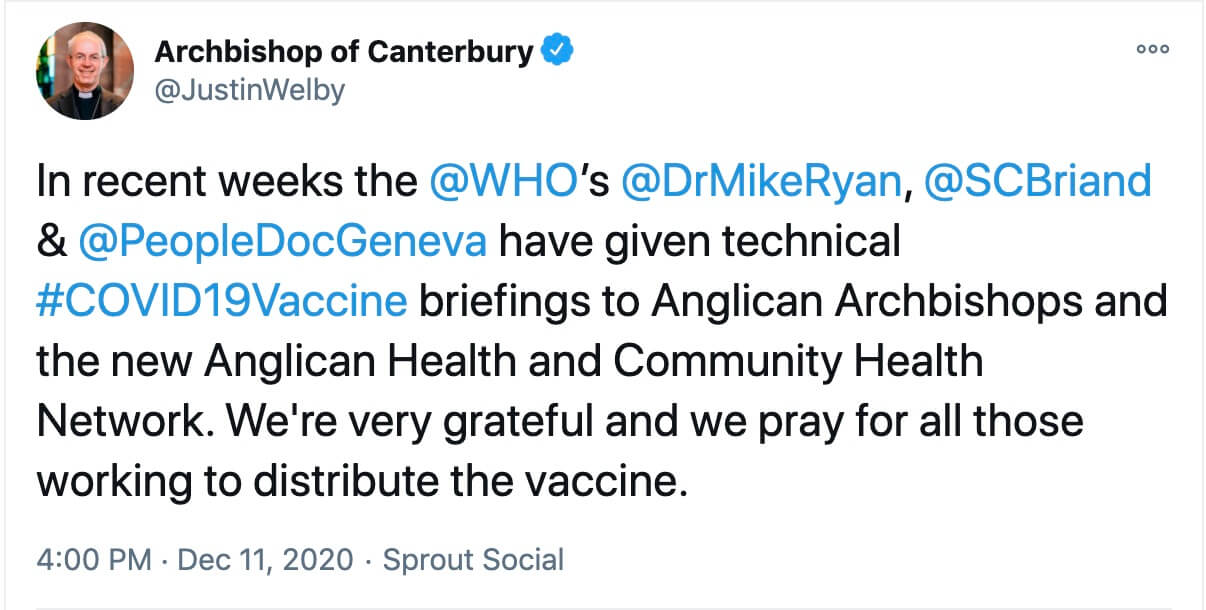Dr Sylvie Briand, Director of Global Infectious Hazard Preparedness at the World Health Organization, briefed health professionals, church leaders and members of the Anglican Health & Community Network and Anglican Alliance on the current state of the Covid-19 pandemic and progress towards the roll out of effective vaccines in a webinar held last Thursday, 10th December.
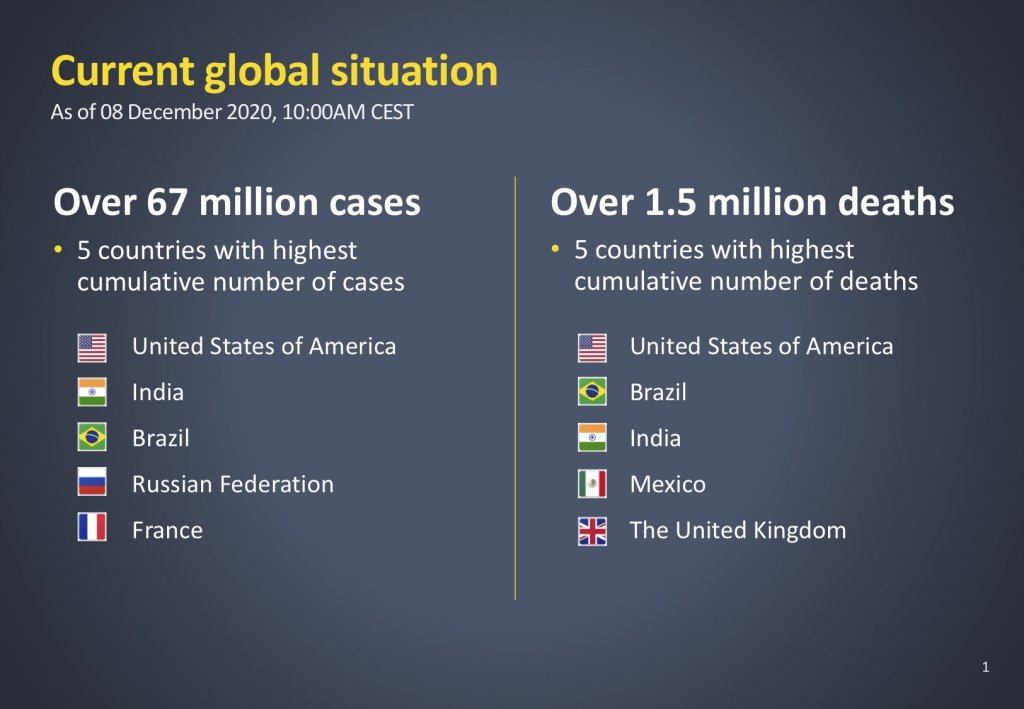 The half-hour recording of her much-appreciated, clear and informative presentation can be found here: WHO briefing on the Covid-19 pandemic and vaccines. Her slides are here and the Spanish version here.
The half-hour recording of her much-appreciated, clear and informative presentation can be found here: WHO briefing on the Covid-19 pandemic and vaccines. Her slides are here and the Spanish version here.
The Archbishop of Canterbury, Justin Welby, tweeted his thanks, saying, “We’re very grateful and we pray for all those working to distribute the vaccine.”
Bishop Michael Beasley, a former epidemiologist who chairs the newly reconvened Anglican Health & Community Network, expressed warm appreciation for Dr Briand’s presentation, describing it as a comprehensive tour de force. “Dr Briand spoke to us as a doctor and as an epidemiologist and gave us much information”, he said. “But [she] also raised a series of questions that I know we will want to pick up on as people of faith, particularly the questions she raised about justice: who is able to access the vaccine and who is not, who is getting care and who is not and where the right place to advocate for justice in these areas is.”
Bishop Michael continued, saying, “Dr Briand spoke of the need for clear communication, about the vaccine particularly, and I think that is essential for people like us, who have trusted places within communities, who are able to speak truth and address falsehood.”
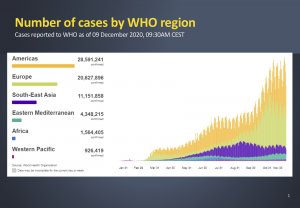 The video recording of Dr Briand’s presentation was used in two further webinars held over the following 18 hours to allow people in different parts of the world to be briefed too. Participants came from far and wide across the Communion, including Hong Kong, New Zealand, South Africa, Egypt, Jordan, Bangladesh, the Philippines, Canada, Brazil and St Helena.
The video recording of Dr Briand’s presentation was used in two further webinars held over the following 18 hours to allow people in different parts of the world to be briefed too. Participants came from far and wide across the Communion, including Hong Kong, New Zealand, South Africa, Egypt, Jordan, Bangladesh, the Philippines, Canada, Brazil and St Helena.
In each session, Dr Briand’s presentation was followed by a question-and-answer session before participants broke into small groups for further discussion on key issues. Dr Rosamund Lewis from the WHO’s Emergencies Programme joined the later calls to answer participants’ questions. Dr Lewis is currently leading the health sciences stream of the Infodemic Management group in WHO’s Covid-19 response.
Dr Lewis explained why WHO is keen to work with faith communities. They are, she said, trusted communicators and “influencers” who are “really essential” in sharing messages. This is because they can do so “in more relevant ways” in community settings, talking about values and feelings as well as facts. “Engendering trust is important, having a dialogue is important, being an influencer is important, and meeting people where they are is important – and that’s what I think faith communities can do”, she said.
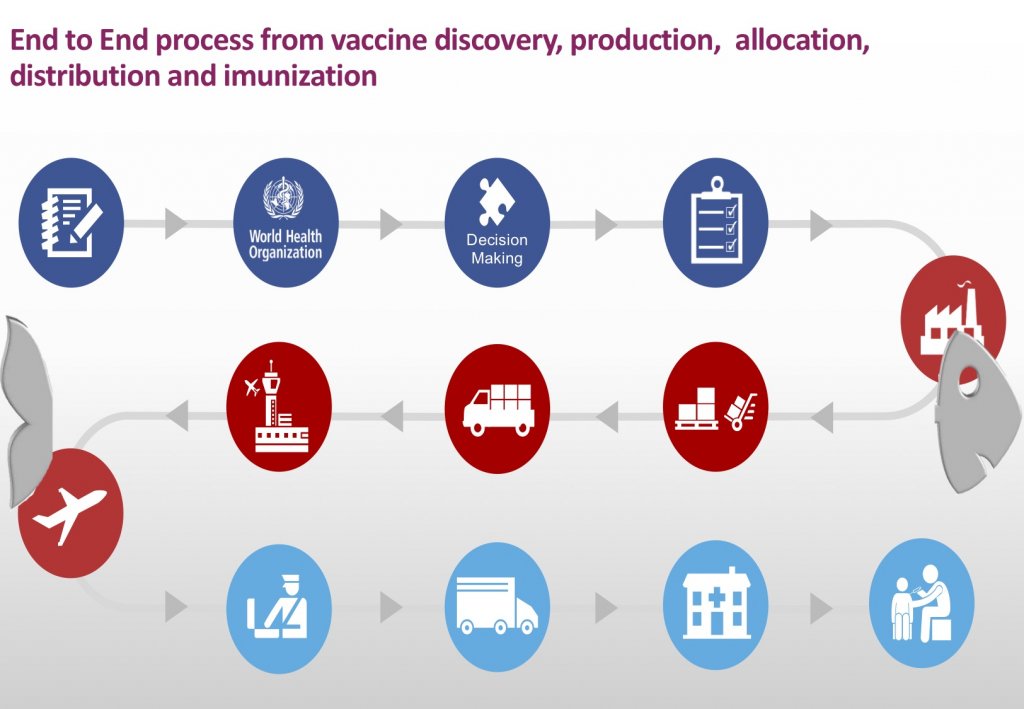 Three clear themes emerged from the questions and concerns raised in both the post-presentation question-and-answer session and the breakout group discussions:
Three clear themes emerged from the questions and concerns raised in both the post-presentation question-and-answer session and the breakout group discussions:
First, the need for reliable, clear and simple information that can be used to inform communities about the vaccines in development. There is a hunger for trustworthy resources to help people understand how the vaccines work, to address people’s legitimate concerns and questions around safety and ethical considerations, and to counter fake news. Misinformation and lack of trust – both in governments and the motives of the West – are widespread, which could hinder uptake when vaccines become available. Providing accurate and truthful information while engaging in open dialogue is seen as the best way of responding to the challenges of myths circulating on social media.
The second key area to emerge was equity of access to Covid-19 vaccines. Mass immunisation programmes have, in the last week, begun to be rolled out in the UK and other wealthy nations, but big questions are arising as to when poorer nations will be able to vaccinate their populations*. There are also questions of equity of access within countries, with concerns raised about cost, corruption and ‘vaccine nationalism’, which might demand that non-nationals are excluded from vaccination programmes. One of the strongest messages that emerged from the webinars was the need for the Anglican Communion to be engaged in advocacy around equity of access to Covid-19 vaccines, both between and within countries.
The third clear point that emerged from the webinars was the crucial role churches can play, through their leadership, their health and education facilities and through the skills of their members. As mentioned above, the WHO sees faith communities as valued partners in efforts to eliminate Covid-19. Their long-standing presence in communities, their role as trusted communicators, the fact they have buildings, networks, hospitals, clinics and skilled members, their ability to be catalysts for local solutions and to facilitate dialogue, and their influence on national and international stages all mean churches can be involved in everything from positively influencing attitudes and behaviours, to helping with the practical aspects of vaccine delivery and to providing a clear lead on ethical considerations and equity of access.
The Anglican Alliance and Anglican Health & Community Network will be developing strategies to address these key areas in the coming weeks and working to deliver them next year. We will be adding resources in these areas to our Covid-19 resource hub.
Members of both the Alliance and the Health & Community Network have also been asked to take part in the WHO’s Faith Community of Practice, to help them shape messaging around the vaccines alongside the faith leaders and communities for whom the information is intended. Drs Briand and Lewis both highlighted the central role of faith leaders and churches in building trust within local communities both in the messages on Covid-19 prevention and the vaccine roll out.
Dr Elizabeth Perry, the Anglican Alliance’s Programme and Communication Manager is a former Microbiologist and Immunologist. She has been asked to be part of the communication subgroup and said, “The willingness and enthusiasm of the WHO to work with us, as a faith-based organisation, is both encouraging and humbling. For me personally, being asked to serve this way is an amazing privilege and big responsibility. My hope is that we can find the best ways of communicating clearly and effectively to ensure churches are able to fulfil their potential of being conduits of reliable information and doing all they can to help bring this pandemic to an end as soon as possible. The solidarity the WHO has shown in being willing to work with faith partners is an inspiring model of the solidarity we can all show at this most difficult of times”.
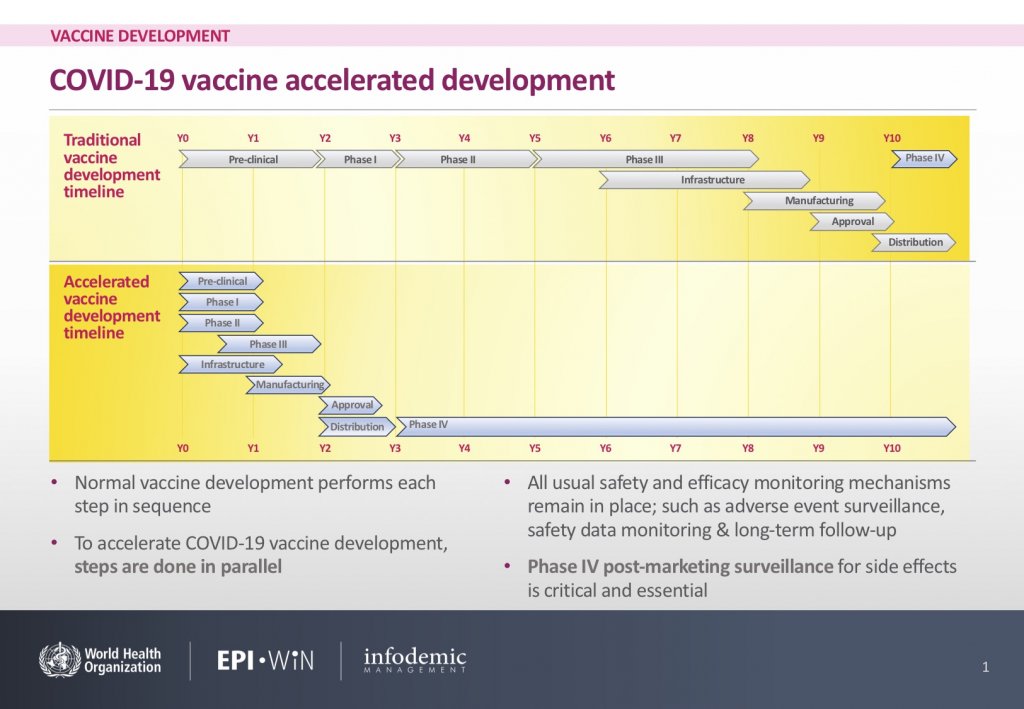 For the latest information on the pandemic, please see the WHO Information Network for Epidemics (EPI-WIN).
For the latest information on the pandemic, please see the WHO Information Network for Epidemics (EPI-WIN).
*Foreseeing this eventuality, the WHO and partners set up the Access to Covid-19 Tools (ACT) Accelerator earlier this year. This unprecedented mechanism brings together “governments, global health organisations, manufacturers, scientists, private sector, civil society and philanthropy, with the aim of providing innovative and equitable access to COVID-19 diagnostics, treatments and vaccines”. It includes a vaccine pillar, COVAX, which acts as a platform to support “the research, development and manufacturing of a wide range of COVID-19 vaccine candidates, and negotiate their pricing. All participating countries, regardless of income levels, will have equal access to these vaccines once they are developed. The initial aim is to have 2 billion doses available by the end of 2021, which should be enough to protect high risk and vulnerable people, as well as frontline healthcare workers”.
However, this ambition is subject to sufficient funding and even if that is secured, the mechanism only ensures enough doses to vaccinate “up to 20 per cent of their population in the longer term”. It is also not clear how this mechanism affects or prevents rich countries buying up vaccine stocks in bilateral deals with manufacturers. Already, rich countries have pre-ordered enough doses to vaccinate their populations several times over, while poorer countries are left without.
Countries which find themselves with vaccine supplies they do not need are being asked to donate their excess stock back to the global pot so other countries can use them and wastage of this precious resource is minimised. Dr Lewis asked that churches and people in richer countries advocate that their governments do this, as well as contributing financially to COVAX.
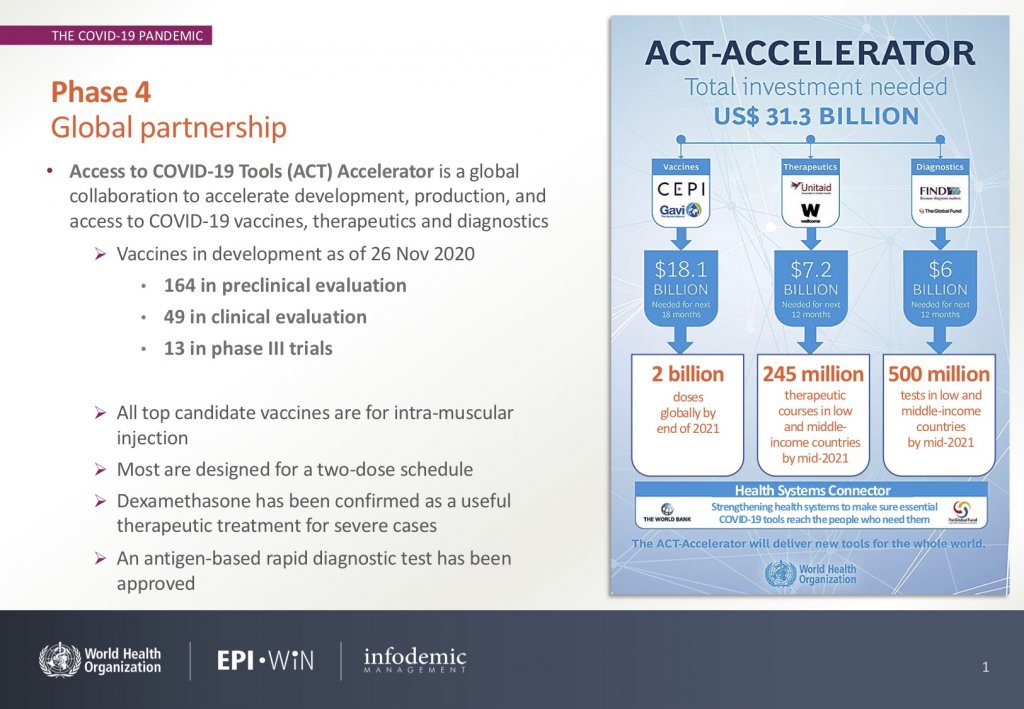
The full set of slides in Dr Briand’s presentation is here.

